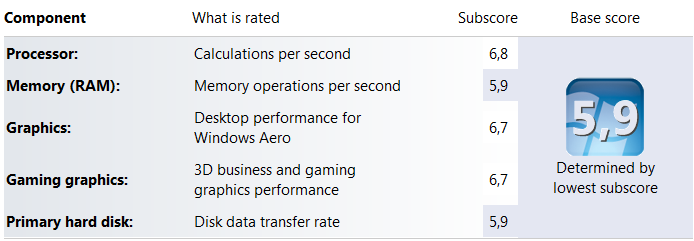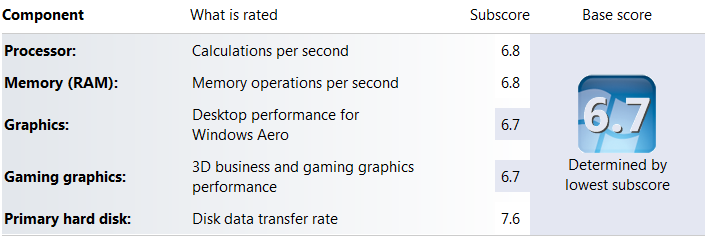October 4, 2023 Leadership, Opinion, Personal 2 comments
On Mentorship
Ever watched a martial arts movie? There is always a Sensei behind the main character – usually a much more experienced, older, and wiser person willing to share their knowledge. Career, life, or software engineering isn’t exactly the same (maybe metaphorically?), but in the very same way, it is always a great idea to be inspired by and learn things from someone who has already been through the journey you are embarking on.
I don’t think I can give justice to the topic of mentorship holistically (go search the internet for that or ask Bard to generate bullet points for you), though I can share my own experiences. In part this is what mentorship is all about, see if there is anything for you below:
In my early career back in Ukraine I was lucky to get direct exposure to our clients from the USA as this helped with my English but I was also lucky to work with talented and highly energetic technical leader and a Microsoft MVP (most-valuable-professional). He was a lot of inspiration for me and probably was the reason for starting this blog and effectively jump-starting my career (tech blogging was very popular back in ~2010). Moving through my career I met many engineers who were highly skilled, had diverse technical backgrounds (think software for Ferrary F1, or for British military, or high frequency trading, or nuclear energy, etc). So I tried to challenge myself to learn from them. Very specifically, one of the annual goals I had in 2016 was “Learn 12 simple skills from other people. To achieve this goal I will first identify 12 people from the community and those surrounding me and chose some characteristic I admire.” I might not have been exceptionally successful in achieving that particular goal but at least I learned to appreciate that others know cool things I don’t. Once I moved to work for big tech (Amazon & now Google) I normally tried to maintain “official” mentorship relationship(s) via internal mentorship programs/platforms.
My experience with “official” mentors so far has been mixed. As always, it all depends on the person and how two of us connect, but in all of the cases mentors have always provided something of a value to me. It was never-ever time wasted. At the very least, a mentor will help you get an outsider perspective on you situation and answer your questions from different perspective other than your manager might. There is no guarantee that you will agree to what they say or that their recommendations will be ideally applicable to you but it is your job to work through those and figure out the best you can get out additional point of view.
I worked with few of my mentors on my promotions. It is always great to get a mentor one or two levels higher as they have a lot more understanding of what it takes to get promoted to the next level and they might actually be part of promo review process for that level. In fact, I feel like I got a lot of information from one of my mentors I otherwise wouldn’t be able to get from my manager.
Other than promotions, the other area I worked on with my mentors was understanding of my next career moves. For instance, one good advise I got was to always get most out of any situation before making any radical decisions. At the same time, I also got “never moving fish is a dead fish” and other types of advise, all of which have had their impact on me.
Third area of engagmeent with my mentors was in building vision/strategy and presenting it to leadership. A very specific advise (and, maybe, a bit weird) was to actually visualize that I’m that leader I’m going to present the strategy to and try to understand what would that leader pay attention to when listening to the presentation. I was actually asked to role play during mentorship discussion, which felt really weird, but I wouldn’t have tried this if I didn’t have this “weird” mentor.
I know that I’ve been a bit of an inspiration for some engineers in the past and this realization was a great source of energy for myself as well as a motivation to self-improve further. Regretfully I’ve lost a lot of drive to be an example or an inspiration to others. I’ve also find it more difficult to be inspired by someone. Don’t take me wrong, not that there are not enough great people around (if anything, my collegues are one of the best and truly remarkable people), it is probably just me getting older and grumpy. In a way I miss those times but on a higher note writing this blog post helped me recall good times I had and motivate myself to be a more active individual in this regard. I currently have a mentee and keep in touch with few former collegues which whom I exchange career advise.
Looking back at my past mentorship relationships I can confidently say that they helped me. Go ahead and get yourself a mentor and if you have the opportunity, don’t hesitate and take a moment to teach someone something you know, chances are you might benefit in the process as well.
Rock Climbing as a way to cope
August 31, 2023 Personal No comments

Sport, but especially rock climbing, turned out to be my way to cope with things that are or were happening: war in my home country, COVID, work stress, personal experiences. Climbing showed me how much I have missed out growing up and but also that there is still hope and room to have a healthy life all despite approaching midlife milestone (and its crisis I guess).
Last few years I’ve been doing more sports than ever before in my life and my body is probably in the best physical shape than ever before and is getting better. In high school, university and early in my career I saw nothing other than my computer or studies. I didn’t take any care of myself nor did I consider it something I had to do. I didn’t give this enough consideration. I started to build my self-esteem via achievements at work and neglected many of other aspects of life, which I regret now. Since then some things have changed. In 2016 I started to run, not much but over time it became quite regular. In 2021 I haven’t missed a single day to a sports activity. As I write this, my usual week includes 1-3 days of rock climbing, 1-2 kickboxing days, 1-2 strength trainings, 1-2 runs and occassional one-off activity (hiking, biking, skiiing, etc…) and I would do more if I could get more days in a week.
Occassionally I get asked why I like climbing and I don’t normally have a good anwer to shoot back right away. It kind of does seem somewhat silly for a fully grown adult to go and try to get up the wall. It may seem absolutely purposeless to climb a steep rock only to get back down later on. But if you think what it takes you could see that one has to go through a process of challanging themselves. They have to fight fear of falling, they have to apply strength up to their limit, and they have to be aware of their body (much like in meditation). So, in a way, climbing can be seen as a spiritual experience. I think over time climbing does more to your mind than to you body.
Climbing is quite social activity. You would normally see a bunch of people cheering someone from their group trying to send a bouldering problem. If you are new, at the beginning you might feel intimidated by all the strong people climbing crazy stuff but you quickly realize that the environment is very inclusive. I don’t know the exact reason, probably, because we, climbers, realize that everyone came here to push themselves over own comfort zone and we want to celebrate as if it was part of our own achievement. Or, maybe, it is our ancestory genes from back when we climbed trees.
I personally maintained a strong friendship over climbing, have met multiple new people, and used climbing as means to invite non-climber friends to hang-out with, and, maybe, learned something new about life from these people. Today I’m going to drive a couple hours to climb with 5 strangers I have never met before.
I’m looking forward to what climbing holds for me. I envision sending harder problems, meeting more of new people, being in places hardly reachable by many, but most of all building self-esteem, chasing that sense of achievement, and feeling of being alive.
Everyone finds their own way, what’s your way?
My Home Office Setup
October 18, 2020 Opinion, Personal, RandomThoughts 11 comments
First things first, this is not a “how-to” post explaining you the “one right way” of setting up your home office. I am a Software Engineer (you are likely to be one as well) and like yours, my home office setup is probably somewhere in between coding on sofa and science-fiction command center. In this post I’m just sharing what I’ve done to improve my home office situation and what I’m thinking might be worth to improve it even further. I will be glad to hear any feedback or advice you might have on this.
Location
Reducing noises, keeping kids from fighting for your immediate and undivided attention, avoiding kitchen temptations, dog barking or whatever else is applicable to you, might be one of the most important factors for your home office, yet it might be the one you have the least control of. I do not pretend to have a batcave for work from home either. In fact, I started working on sofa when COVID first hit in March and then quickly realized this wasn’t a good idea. Step by step I improved my WFH situation and currently have something reminiscent of an office. I’m renting a relatively large apartment, though it obviously wasn’t designed with a workspace in mind, so I’m using a bedroom. Yeah, a bedroom! I have rearranged the furniture in a way logically separating the room into office and non-office halves. In this post, I am going to show pictures of my office half. (Not too eager to post photos of my bed, especially when it is not made up :)).
Desk and equipment arrangement
I’m in favor of simplicity and minimalism when it comes to my desk. Even when I was going to the office I would usually keep it empty from anything non-essential. So here is my arrangement:
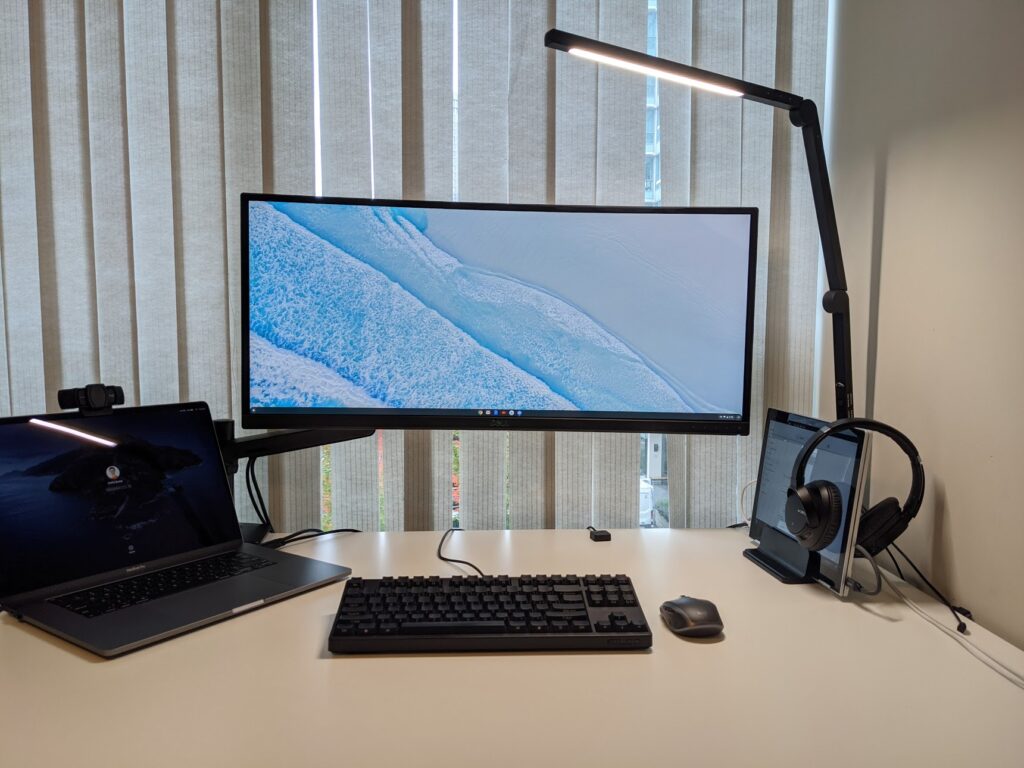
On the left you see my work laptop with two cables. First cable goes to a docking station serving as a power source and connecting the laptop to 300 Mbps internet (seems to be enough ¯\_(ツ)_/¯) as well as to external camera which you can see on the top of the laptop (I will touch on this again later on). Docking station has enough ports to add more peripherals. Second cable connects my work laptop to KVM. If you see, there is a small button in front of the keyboard – that’s KVM switch allowing me to share 34″ monitor and keyboard between laptops on the left and right. Laptop on the right is my personal laptop. I intentionally don’t login with my personal account on my work laptop for multiple reasons (will touch on this later as well). There is also a desk lamp and desk power source located in the right corner mostly for charging devices (2 USB-C, mini-USB, Garmin). I might keep few different sets of headphones on the desk, but usually prefer to keep them in the back of my “office”.
List of Equipment and details
Except of work laptop and few small things, all equipment is something I bought with my own money before I knew my new employer is so generous to give 1000$ to its employees to improve WFH situation [public info]. Below is the list of the equipment I’m using with links to Amazon for reference only – those are not referral links (I’m not trying to make money on your clicks, and this post is not written for that purpose).
Monitor: Dell UltraSharp U3415W 34-Inch Curved LED-Lit Monitor (Older Model) It is a nice wide curved 34″ monitor I can easily use as if I had two with tools like Spectacle on mac or built-in shortcuts on chomebook. The only regret I have is I should have probably went for newer version with more aggressive curve and USB-C support.
Monitor Stand: AmazonBasics Premium Single Monitor Stand This allows me to bring the monitor forward/backward, up/down or change the angle. This is so much better than having monitor placed stationary. It also allows to free up some space on the desk.
Keyboard: Filco Majestouch 2 Ninja Cherry MX Blue Switch 87 Key Mechanical Keyboard Black This is compact super-loud faceless mechanical keyboard. I love this keyboard and find it to be beautiful. It might be too loud to use if you are sharing space with others, so keep this in mind.
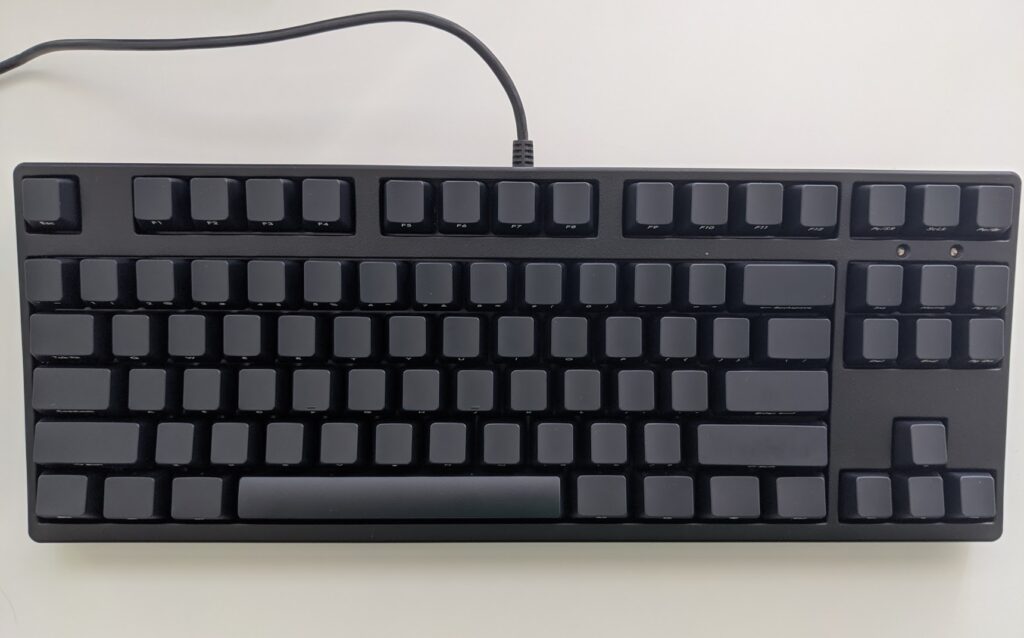
Mouse: Logitech® MX Anywhere 2S Wireless Mouse A nice precise mouse, though I often don’t like how it behaves on Chomebook. Not sure if this is an issue with the mouse itself or ChromeOS (and yes I tried to play with the settings).
Logitech MX Master 3. This is a full size and precise mouse. I am glad I replaced the old small one with this one.
Docking station: Dell WD15 Monitor Dock 4K with 130W Adapter, USB-C While docking station is definitely something to have I do NOT recommend this particular one as it is not fully compatible with newer Macs. My monitor flickers when I connect it via this docking station. Here is DELL’s support page on this. I’m using this station for power, internet connection, web-camera, and any further peripherals I will need to add to my work laptop.
KVM: Sabrent 2-Port USB Type-C KVM Switch with 60 Watt Power Delivery After much of extensive search I gave up looking for a docking station that has TWO usb-c power delivery outputs and also works as a KVM. This seems to be non-existent device. So instead, I bought myself a dedicated KVM. It is simple and it works. Power delivery is not always detected on my Pixelbook, so I skip PD option and use another cable to power my personal laptop on the right.
Power: BESTEK Power Strip with USB for charging devices, powering lamp, and occasional plug-in of things at top of my desk. I also use conventional power extender for low-power things under my desk and directly plug into the wall outlet more power demanding devices (monitor, docking station).
Desk Lamp: Swing Arm Lamp, LED Desk Lamp with Clamp, 9W Eye-Care Dimmable Light, Timer, Memory, 6 Color Modes, JolyJoy Modern Architect Table Lamp for Task Study Reading Working Home Dorm Office (Black) Super happy with this lamp – it can be bent in so many ways. I can recommend this one.
Vertical Laptop Stand: OMOTON Adjustable Something to hold my personal laptop vertically and save even more space. Anyway it is so much more pleasant to work on a large monitor (something I’m doing right now).
External Web Camera: Logitech C920S HD Pro Webcam with Privacy Shutter External webcam has its advantages of providing higher quality image with active focus. Unfortunately I probably need to add some swinging arm or a holder to it as right now I’m placing it exactly where laptop’s camera is and don’t think that my coworkers have even noticed a difference. I’m yet to test if mic is better on it in comparison to built-in one. Some people use dedicated external mics and their sound quality is noticeably better.
Backup power and internet connection: I also have two 20K+ mAh external power banks (one of which is enough to jump-start my car) and 20Gb of mobile internet plan. Based on my 4 hour testing this should take me through a full day of power outage. I know this is not ideal, but I’m also not running a data-center at home nor I have a detached house to buy myself generator or a similar solution. In fact, I do not remember unplanned power outage in my building since I live here and a planned one only lasted 4 hours.
Cables: Well… Everyone is ought to have some wire spaghetti under their desk. Right? I didn’t do anything special about the cables. Just tied some of them together so I don’t hit them with my feet.
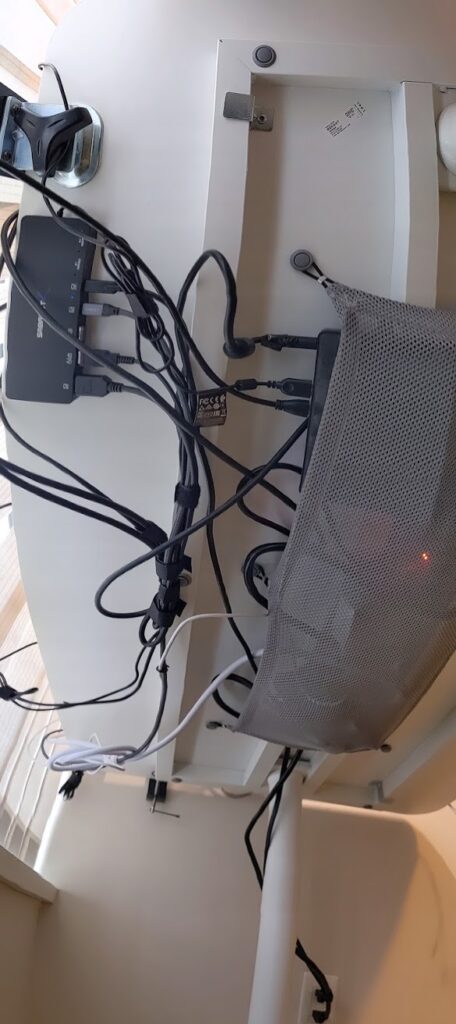
Desk and chair: Those are cheap IKEA ones. I’m considering to change the legs of my desk to make it height-adjustable standing desk. As of chair, I don’t think mine is great for 8+ hours of sitting in it.
As of 2021 replaced the chair with Autonomous ErgoChairPro.
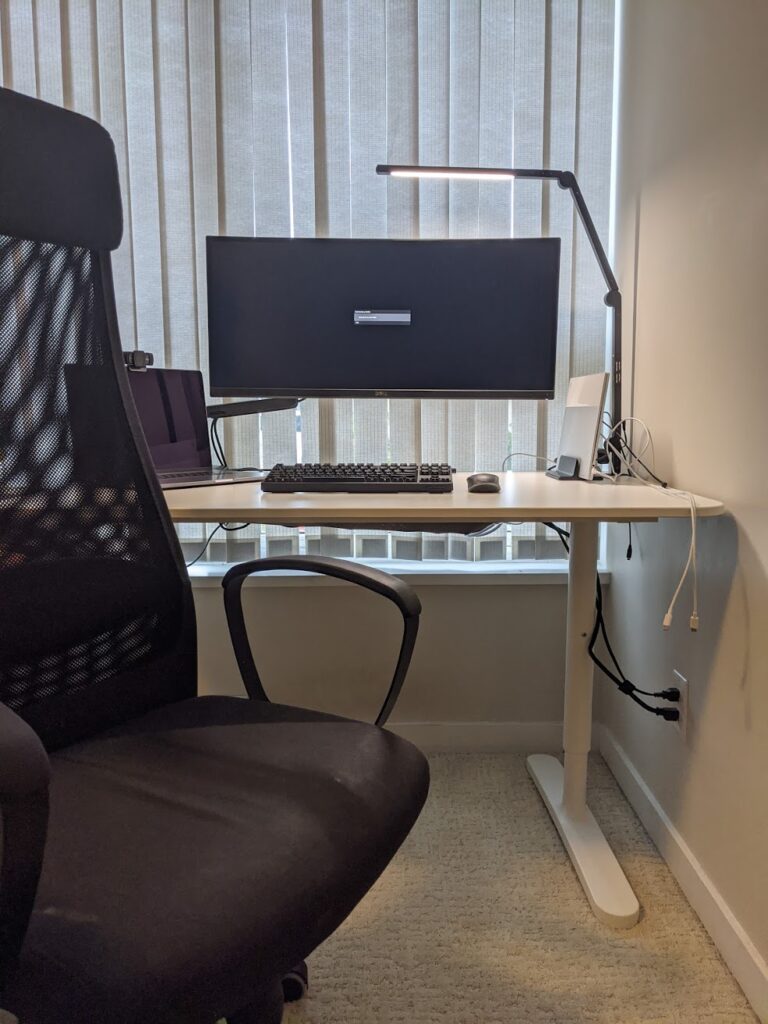
Ok, back of my “office”
To complete the picture of my office here is what I have just behind myself:
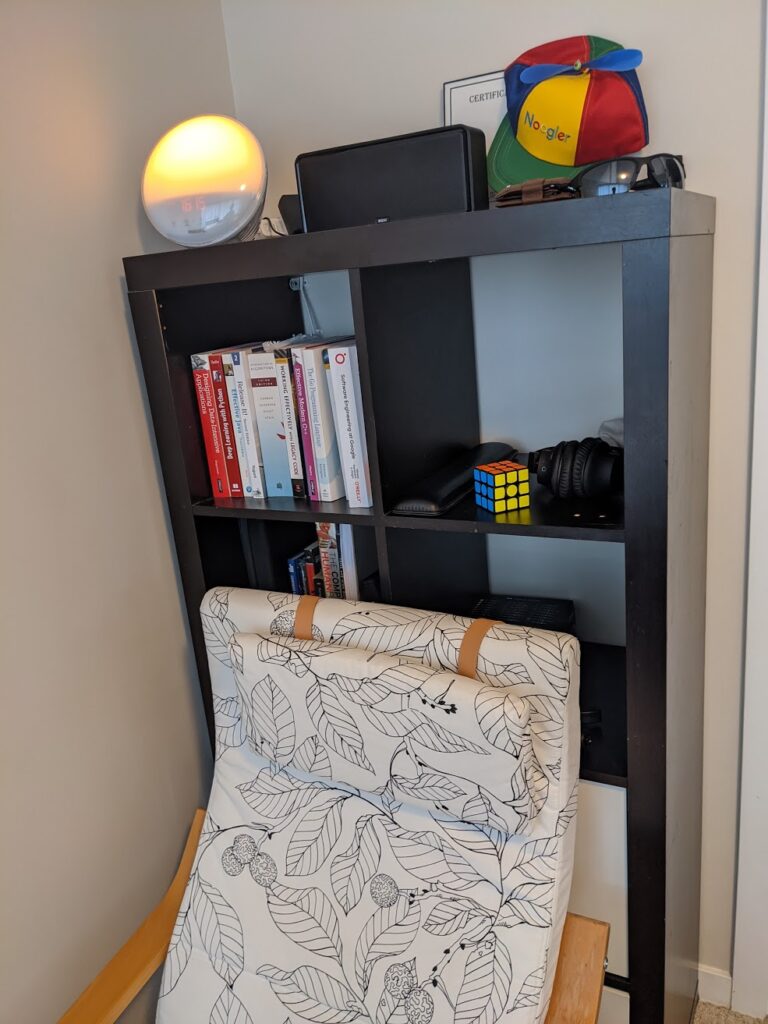
It is another IKEA chair for mental breaks and a bookshelf which has few books but mostly serves for accessing things I would use time-to-time, like keyboard palm-rest, other headphones, cables and few toys (no, I didn’t reassemble and then assemble the Rubik’s Cube – I can actually solve it). I’m also using the most expensive alarm I ever had which supposedly should help me wake up more naturally during winter months but doesn’t.
Last but not least, pull-up bar (BODYROX Premium Pull up/Chin up Bar) which I occasionally use during breaks. I consider it to be part of my home office as I wouldn’t buy it if I didn’t have to work from home.
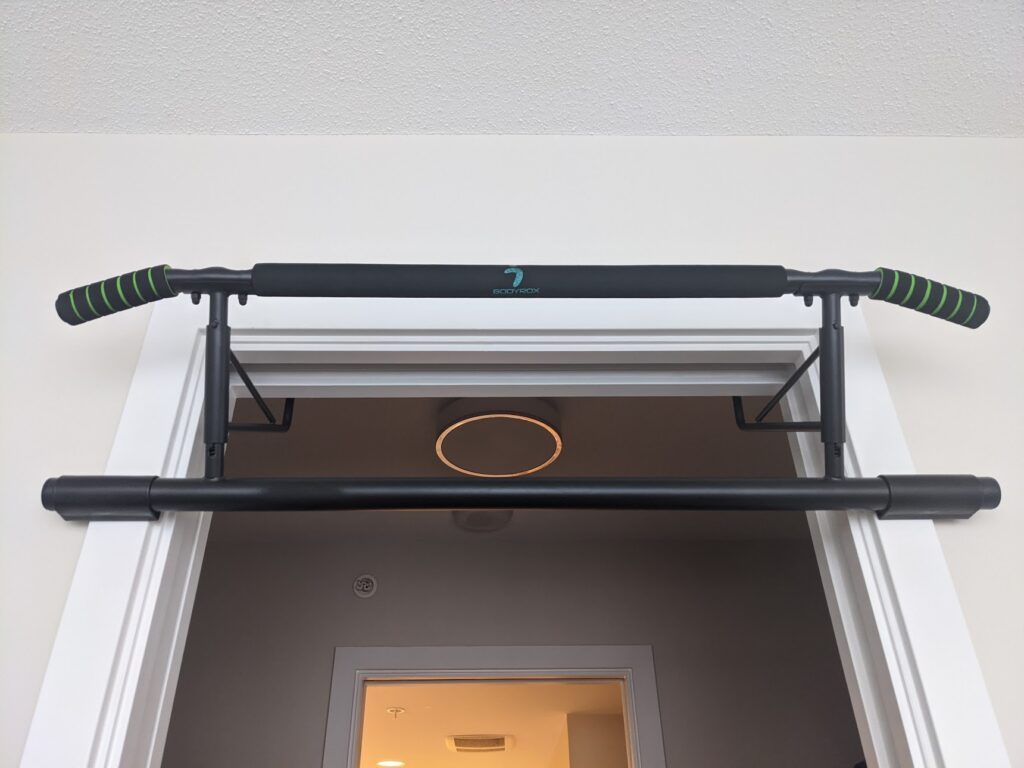
No Personal things on Work Laptop
As mentioned above, I’m not logged in with my personal account on my work laptop – this means I cannot open personal gmail, facebook, instagram, twitter, favorite news site, whatever. When I actually need to do something personal I have to specifically log-in into my personal laptop, which means pressing KVM button. This small physical constraint and a clear separation not only helps to be fully compliant with whatever policies there are on the use of work laptop, but also helps to be totally focused on work. I find myself almost not switching to my personal laptop at all during working day (I take breaks, though). Additionally I blocked myself out of all of those distracting social media apps on my phone for working hours and limited their use to 15min/day/app with digital wellbing tools on my phone. I’m super happy about this (thank you, Google). In fact, this also helps me close item #23 on my new year’s resolution.
Your Feedback and Advice
I would be enormously happy to receive any advice from you on what I might be missing in my home office setup and what you would recommend. I understand our situations might be different but we are all in this together and if you have something to share please do so!
Goodbye Amazon; Hey Google
August 24, 2020 Career, JobChange, Personal, Success 4 comments
Disclaimer: opinions in this post are my own and do not represent opinions of my current employer or any of my past employers or any of my or their clients.
Time for some big news: as of 24th of August I’m a Googler or rather a Noogler, as newly joined employees are being called.

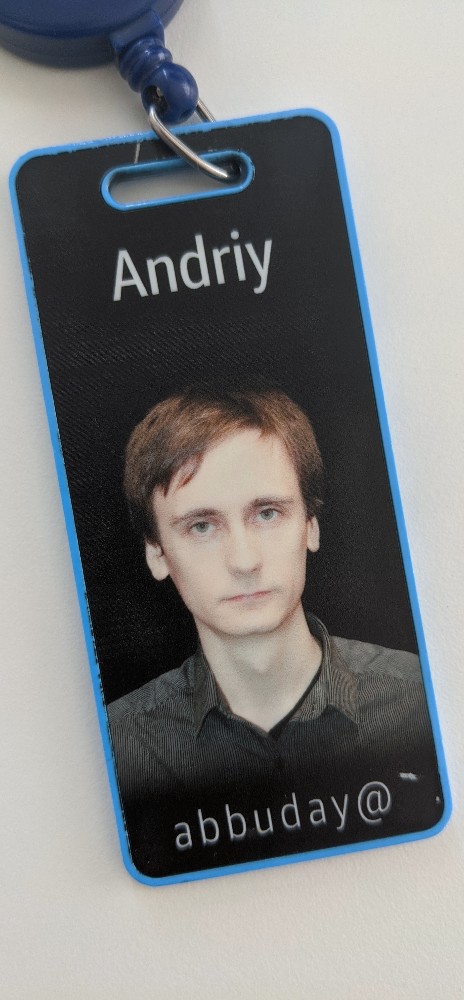
It has been almost a month since I left Amazon. Here is a “mandatory” badge photo. Amazon was a place of rapid learning on multiple fronts, not just from engineering perspective but from many other. I learned Java or at least enough so that I can write code in it (not that is is much different from C#, which I knew before) and I learned how scalable and resilient solutions are built. But other than that and most of what I learned wasn’t programming related but more of understanding on how truly data-driven, customer-oriented (or let’s say “customer obsessed”) company is run. Seeing this machinery crunching from inside was absolutely astonishing. Probably what’s the most prominent about working for Amazon is its strong prevalent culture embodied in 14 Leadership Principles. Each and every aspect of work is guided by those principles. It starts with your interview to be an Amazonian. It takes you through working days, your promotion, decision making and anything you could think of. People live by these principles.
During 2.5 years I worked on retail project to launch and scale a fulfillment channel in one of the rapidly growing markets. The time allowed me to meet and work with amazing and smart people. The team I was on was awesome and my manager was a boss you can only dream about. I liked the vibe of Vancouver’s office, maybe because it was much more multi-cultural and diverse compared to Seattle (though I might be mistaken). I was promoted at Amazon to SDE3. The project I was on was and probably is gaining more and more of momentum.
Some of you would be curious why I left Amazon if things were going so well. (Just look at AMZN stock price for one data-point). As every job there are negative aspects. Amazon is somewhat notorious for those, but I didn’t leave Amazon to leave Amazon. I am not excluding joining Amazon again some years from now. Current decision is more to learn about another big company, its culture and processes, especially when we are talking about Google.
I don’t know what exactly to expect from this change. Many software engineers see Google as the most desirable employer to join. The company is famous for its high engineering standards, googley culture and so many other things. I’m excited to the core to embrace what is coming at me.
Among 24 checkboxes in my 2020 plan working for Google will tick few of them. This includes double-tick on meaningful work-related change, learning a new programming language (will be coding in Go and Python), and unexpectedly might change my coffee and sleeping habits (if I succeed in regularly getting up before 6AM and not having coffee :) ).
It’s all in your head: thoughts on 15 books
September 22, 2019 Book Reviews, Career, Opinion, Personal 3 comments
Metacognition. Seeing with your tongue. Implanting fabricated memories. Superintelligence. Immortality. Dataism as religion. Lobsters and your social status. Number anchoring when negotiating your salary. Amoral deception. Illusion of choice and of free will.
Are you intrigued? You should be. I definitely was impressed by some of the new knowledge gained and ideas covered in few books read recently. This post is a set of short one-four paragraph book reviews. Some books I do recommend and some I don’t though still mention them for my personal record and for entertainment reasons and also to prevent you from reading them. Since this is covering 15 books the post is going to be relatively long. Please bear with me.
Learn better
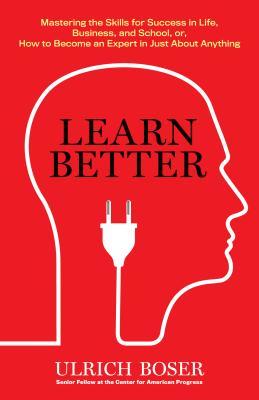
Key idea: Learning is a skill and you can teach yourself to be better in it.
The author advises 6 steps: value – make learning more valuable by associating it to things you appreciate, target – set learning goals, develop – practice with audience or teach, extend – constantly improve understanding of existing knowledge, relate – create relationship between concepts, and rethink – don’t get overconfident and dive deep to understand ever better.
Quote: “The act of writing is a good example of metacognition because when we think about composing sentences and paragraphs, we’re often asking ourselves crucial metacognitive questions: Who will be reading this? Will they understand me? What things do I need to explain? This is why writing is often such an effective way to organize one’s thoughts. It forces us to evaluate our arguments and think about ideas.”
At times I regret how I was studying at university – I could have been much more efficient had I known that the key is to retrieve the knowledge instead of repeatedly consuming information. My interpretation is that the brain works in such a way that when we consume information it is transmitted towards its storage destination igniting complex neural paths in one direction but to retrieve the information the path has to be ignited in the opposite direction as well or otherwise we risk “forgetting”. This brings us to the next book:
The Brain: The Story of You
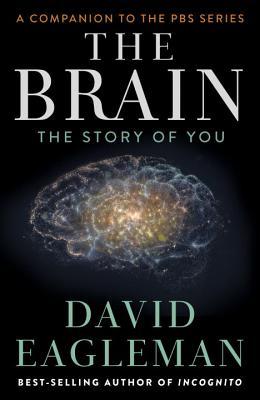
The book if full of all kinds of absolutely fascinating facts about inner workings of our brain. Sometimes even slightly creepy. For instance, read this quote below:
Quote: “So not only was it possible to implant false new memories in the brain, but people embraced and embellished them, unknowingly weaving fantasy into the fabric of their identity.”
Disregard if you believe someone can implant fake memories, this book is totally absorbing and exciting read if you are new to neuroscience and psychology and want good introduction. You would get to learn about extreme adaptive capabilities of the brain and other things. As I understand it, effectively the brain is a powerful interpretation machine taking electrical signals as input (from your ears, eyes, tongue, nostrils, skin) and translating them into flow of bioelectric processing that could cause certain chain reactions resulting in physical actions and/or secretion of chemical substances (hormones) by glands effectively making us alive. Since the brain is such a powerful interpreting machine we can work on providing it with other inputs and teaching it to handle those as well. In this way a guy has learned to see with his tongue and even climb using Brainport. This is a real product for people with disabilities consisting of a camera on outside, a pad put on tongue towards which an electric picture is projected. To extend on this, there is nothing that could prevent us from extending capacity of human body.
Or, maybe, instead we can build artificial general- or super- intelligence to help us out?
Life 3.0: Being Human in the Age of Artificial Intelligence
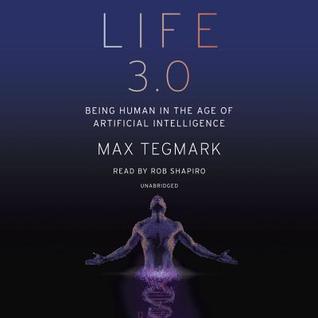
Let’s do versions first: 1.0 – biological when hardware and software evolved, 2.0 – cultural when software is designed and hardware is how it was, 3.0 – technological when both hardware and software are designed. Here “hardware” is human body and “software” is our cognitive abilities to process information.
This book reads almost as science fiction and somehow involuntarily reminds me of movies where robots and humans exist together. The book brings questions of how the society will exist when Artificial General Intelligence becomes a reality. Would we no longer need to work? Would machines try to exterminate us as in Terminator movies or harvest for energy as in The Matrix? I liked be book for bringing all of these interesting questions, entertaining on all kinds of possibilities, and exploring potential solutions to new problems we would eventually have to face and at same time not actually being a fiction.
Can we become super-humans or even gods without the help of AI? Let’s look what the next book says:
Homo Deus: A Brief History of Tomorrow
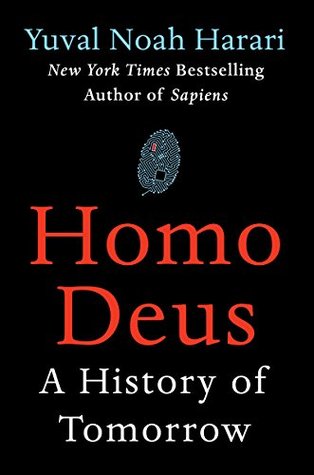
The key idea is that we eventually become god-like and gain ability to control life and environment and Homo Sapiens goes extinct. We might eventually lose our carbon-based existence and just become information.
I really like the structure of this book taking your slowly from understanding how much progress humanity has made by overcoming such horrible things as plagues, famines, and wars. Then the book sets next goals for humanity such as immortality and eternal happiness. The author then projects his historical knowledge and recent achievements in medicine and technology into what future might bring us.
We believed in gods, science, liberalism, other things. Humanism being the main “religion” of 21th century when we celebrate our own intelligence and experiences, but the final and the last one could be Dataism. You can translate everything into data! Everything. Many people measure their pulse, sleep, etc. People with diabetes wear devices that measure blood sugar levels and inject insulin as needed. People post pics on facebook, instagram nonstop, and tweet like crazy. When I run I measure speed, pace, etc and compare to earlier myself and other runners. Oh… and I write this post. Let’s go further: wondering how good sex with your partner is – easy put data sensors that measure, duration, intensity of orgasm, analyses sweat contents and put it on a plot over period of time and you know all you desire to know and, maybe, even compare to results of others. Sounds weird? I bet, but some real companies produce products like this. Now, let’s put even crazier proposition: Do you even exist if you are not connected to net and there is no digital trace of you? Right now, you would think that you do, but maybe in future ubiquitous data stream of human life becomes their life in itself?
Quote: “Senses and emotions are biochemical data-processing algorithms”
Speaking of biochemistry:
12 Rules for life
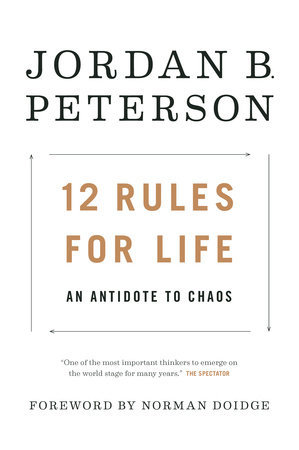
Serotonin is natural hormone associated with feeling of happiness. It is antidepressant you can get prescribed if you’ve got depression. In lobsters serotonin is regulating posture – the more serotonin – the more open lobsters posture is – the higher lobster is in its dominance hierarchy. Let’s call them alpha-lobsters (AL). Other male lobsters would know AL are tough ones and would not take on them and female ones would be attracted to AL. Female ALs would also be the ones with all the mating choices. Lobsters existed since 350M years ago (and if you recall 65M for dinos and some 200-300K for homo sapiens). Now the interesting part: the process of regulating posture and social status is embedded in humans the same way as it is in lobsters. Yeah it is very deep inside us, but, damn, crap, no! So the first rule is “Stand straight with your shoulders back”.
I didn’t like the book, though. Except of the very first rule others are not so fascinating and exciting. Not too sure what exactly to make of the first rule or what other rules are teaching us, but the book is quite popular and the author is very interesting personality (Canadian clinical psychologist with strong views), so instead of reading I would recommend to watch this first: https://www.youtube.com/watch?v=-5RCmu-HuTg (start at 3:40) and if you still want to read all 50 shades of grey in the lobster world – go ahead.
10% Happier
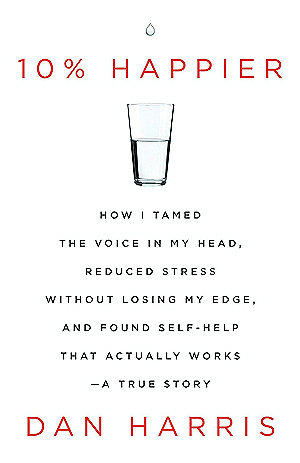
Another book I cannot really recommend. Listing here mostly for myself as not to forget. I read it and, yes, it is quite interesting as a story, but not much more. The book is like a memoir of one of the journalists who discovered his way to practicing mindfulness through his personal struggles of finding himself while building his career, reporting at war, craving for drugs (adrenalin, cocaine, whatever), and interviewing notable people, such as Dalai Lama. The only learning form this book is that celebrated people are often deceiving, they are hiding things and are driven by crazy things. The author didn’t motivate me to start meditating – I still think it is not gonna work for me. Somewhat fun read though, waste of time otherwise.
Speaking of deception:
The 48 Laws of Power
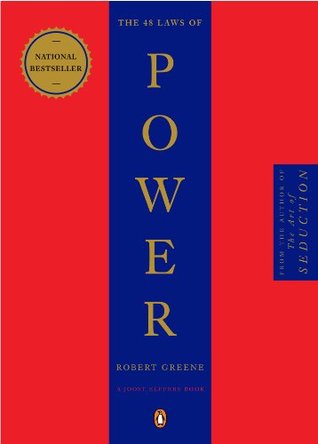
Let’s start with a disclaimer: I do NOT praise this book.
This book effectively teaches you how to deceive others and how to work your way to gain power the evil way. Wikipedia says it is a bestseller popular with prison inmates and celebrities. Description on goodread has this “This amoral, cunning, ruthless, and instructive book synthesizes the philosophies of Machiavelli, Sun Tzu, and Carl Von Clausewitz with the historical legacies of statesmen, warriors, seducers, and con men throughout the ages.”
If you want to understand how amoral this is read the quotes here: https://www.goodreads.com/author/quotes/865.Robert_Greene I don’t even want to repost them here.
Key learning: bad people exist and they could intentionally be manipulating you in psychopathic ways just to get what they want no matter what the price or method. It is good to be aware of such things and try to recognize and distinguish between people with genuinely good intentions and those who are evil. Never be a victim.
The subtle art of not Giving a F*ck
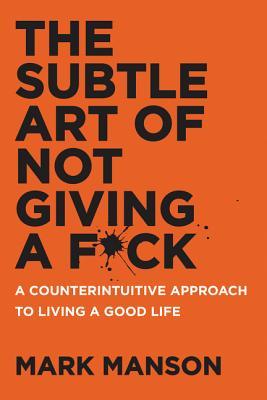
One thing that I like about this one is that the author says it is ok to not try being positive all the time. At times people are overplaying it and it is weird when they pretend to be happy. Acceptance of some of the negative experiences is a positive experience in itself.
The book is an easy and extremely entertaining read, especially if you are feeling a bit stressed and worry about too many things. Definite fun. Most of us like fun, so if you are going to read/listen to it do it mostly for that reason.
Algorithms to live by
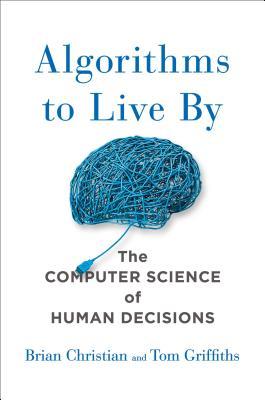
Fun book for software engineers on how you can incorporate computer algorithms into your everyday life. Just go and read. Super easy reading and wonderful way of spending your time.
Wondering how to sort your clothes and stuff in the most effective way? Like maybe sorting them by type? Nope. Wrong answer. The best way is to introduce Least Recently Used cache, making sure stuff you need the most often is always most accessible.
Go ahead and apply game theory towards making your decisions and design mechanisms for decisions instead of relying on good intentions.
Never split the difference
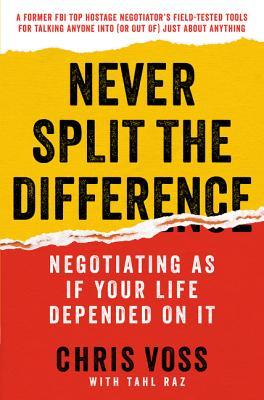
Ok, finally back to slightly more serious books, and I would go as far as to say that this book is a “must read” before your next job offer negation. The book is written by former FBI agent who worked as hostage negotiator.
It is also probably one of the most practically useful books for people who have office carriers like me and would like to apply negotiation techniques in almost any discussion. More often than not, “No” means “wait” or it means there is something the other side doesn’t want to reveal. Your job is to work through what the other side really wants.
Louder than words
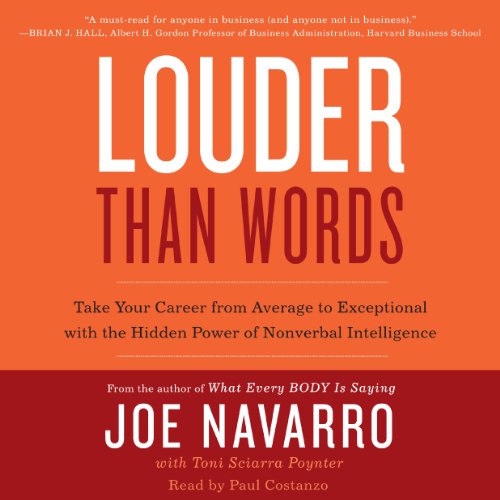
This is a book on nonverbal intelligence. I remember it being intriguing when listening to. We humans are very interested in knowing what others think. They say body language conveys 55% of communication. If this is true then we should benefit from learning to be better at understanding nonverbal messages.
Principles: Life and Work
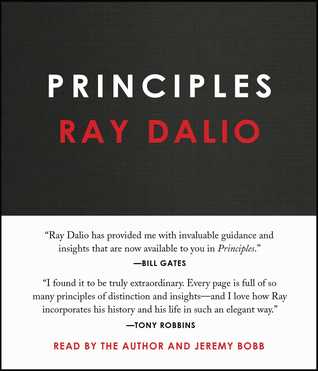
This is really good perspective on how you can structure your life and work around set of principles. I like the emphasis on always getting all the way to truth by overcoming your emotions, ego, and blind spots.
One of the great and unique notions introduced in the book is idea meritocracy that can be applied at workplace based on the following: radical truth – no filter on what you’re thinking, radical transparency – being super open for entire organization, thoughtful disagreement, believability-weighted decision making.
If you don’t have time for the book just want this great video on how economics works and then look at the principles for success videos. These two should be worth one hour of your leisure time. I really appreciate how Ray Dalio is trying to leave some legacy after him.
Extreme Ownership
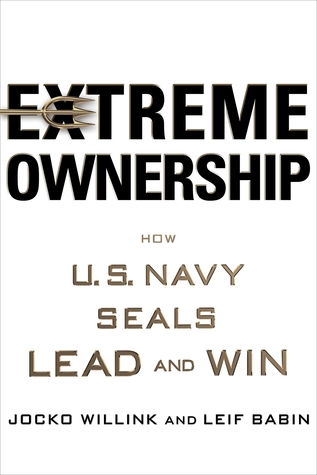
This book is written by former US Navy-Seals who fought in Iraq and in essence is partially memoir and partially book on leadership covering 12 principles towards becoming extreme owner and a real leader. The most memorable are the first and the last. The first one is extreme ownership: always take full responsibility for your own and your team’s results, never blame anyone.
Quote: “Implementing Extreme Ownership requires checking your ego and operating with a high degree of humility. Admitting mistakes, taking ownership, and developing a plan to overcome challenges are integral to any successful team.”
The last principle one is discipline equals freedom: conquer your weaknesses, procrastination since being disciplined means being fee. This brings us to another book:
The Power of Habit
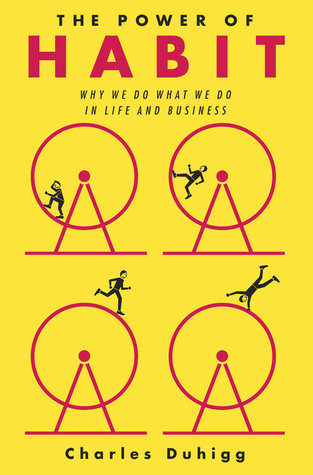
Key learning: most of our lives are structured on top of numerous habits and building right habits could propel you really far forward.
Habits have the following structure: Cue (stimuli) + Response (actions) => Reward (resulting sensations). To build a new habit you need to identify the response – which is the core of what you want to be doing, then you need to come up with cues that would repeat and eventually create craving (same timing, same location, same triggers), and then you need to make sure you get the reward or punishment. Once this is done: repeat-repeat-repeat and at one point you won’t be able to resist.
Quote: “Habits are most malleable when the Golden Rule of habit change is applied: If we keep the same cue and the same reward, a new routine can be inserted.”
Thinking Fast and Slow
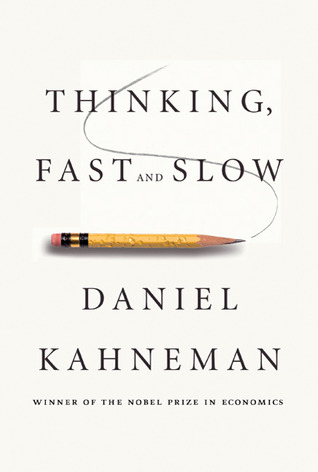
This one is written by Nobel price winner and is probably based on more research done by author himself than any other book in this list. Not an easy read. I definitely recommend the book, but probably don’t listen to it like I did. Get yourself kindle or paper version.
This is a book on how we think about things in realm of two systems: system 1 – fast processing, lazy, and emotional, automatic, and impulsive; system 2 – slow processing, rational, aware, conscious, and considerate. Although the author didn’t give these parallels I tend to think about system 1 as subconsciousness or based on subconsciousness and about system 2 as that of consciousness.
Default rule. Let me give you one example: I lived in Austria for some 6 years. Had I died in car incident I would have been donor of my organs, same is the case for 99% of drivers in Austria. Now, this number is only 12% in neighboring and culturally similar Germany. This is simply because Austria uses opt-out and Germany uses opt-in system when collecting consent. System 2 needs to put consideration in case of opt-in, while system 1 is happy to skip in case of opt-out.
Loss aversion. We are more afraid to loose something than we are eager on getting more of it. Authors provide numerous examples of loose/gain propositions with exactly same statistical outcomes and demonstrate how people choose option that sounds more safe. Unfortunately in real situations what sounds safer could be irrational and more often than not people actually make the wrong decisions. This is especially important when you make money decisions.
There are many other concepts introduced in the book all backed up by research, evaluation and phrases for remembering in the end of each chapter. Just going over all of these concepts is worth your time as it might help you make better decisions. I am considering rereading kindle version of the book after some time.
Conclusion
Personally I find this kind of books very fascinating and engaging as they provoke profound thoughts on our existence and provide guides towards enhancing our future well being.
Hopefully these short reviews are useful to you and will help you pick your next read.
Thank you.
Would be happy to receive quick recommendations on similar books in comments!
My Dell Laptops History And New Dell Precision 7510
December 11, 2016 Personal 6 comments
Time has come to buy a new beefy laptop for my blogging :). This time I bought Dell Precision 7510.
I have a history of buying Dell laptops. You can call me a fan of Dell if you want, but really I just continue buying them because they work and I have never had any issues with them, except of when I spilled tea on my XPS 13 and had to replace keyboard and screen. I’ve made few upgrades to XPS16 (RAM, SSD, battery) and now it is being actively used by my wife for some photo editing and general home use. XPS13 in some aspects is as powerful as XPS16 and at the same time weights only 1.3 Kg. It is really easy to carry everywhere. When I bought it I said that it is “thin as “Mac Air” and powerful as “Mac Pro” but costs less”. Unfortunately over time I could not feel very productive on it. Even though I could do everything I needed, I couldn’t pleasantly run heavy IDE or VMs or play games that required dedicated graphics. It felt like I needed a proper workstation.
Decision making on a new workstation went terribly wrong. I spent around 8 hours comparing options:
I was seriously considering desktop PC instead of laptop, but eventually leaned towards powerful laptops that can be easily docked if needed. I was choosing between different Lenovo and Dell (yeap, no Mac). I stopped on Precision 7510 because it is real working station. It comes with thunderbolt interface, it is highly configurable and it is a brand I used for a long time. Another reason for choosing Dell was pricing. Since I was buying at dell.at as a small business I was able to customize my purchase very granularity: removed unnecessary support and useless stickers, selected Ubuntu OS and cheap delivery – something Lenovo was not offering. As of hardware I have chosen to reasonably max those things that I’m not going to upgrade (CPU, GPU) and leave room for other upgrades (RAM, HDD). I didn’t choose 4K touch monitor, as I don’t think it makes any sense on 15″.
Here below are some specifications for all of my Dell Laptops:
Dell Studio 1535
|
Dell Studio XPS 1647 |
Dell XPS 13 |
Dell Precision 7510 |
| Intel® Core™ 2 Duo T5850 2.16GHz | Intel® Core™ i7-620M (Prev Gen, 2 Cores, 4 Threads, 4M Cache, up to 3.33GHz) | Intel® Core™ i7-3537U (3rd Gen, 2 Cores, 4 Threads, 4M Cache, up to 3.1GHz) | Intel® Core™ i7-6920HQ (6th Gen, 4 Cores, 8 Threads, 8M Cache, up to 3.80 GHz) |
| LCD (1280×800) | 15.6″ FHD Widescreen WLED LCD (1920×1080) | 13.3″ Hi-Def (1080p) True Life WLED Display W/1.3MP | 15,6” UltraSharp FHD IPS (1920×1080) |
| DVD Super Multi | 8X CD/DVD Burner | – | – |
| 2GB DDR2-667 | 8GB Shared Dual Channel DDR3-1333MHz
(originally 4GB) |
8GB Single Channel DDR3-1600MHz | 16 GB (2 x 8 GB) DDR4-2667 MHz (two more slots available) |
| 320GB 5400RPM | 256GB SSD (originally 512GB 7200RPM) | 256GB SSD | 256GB M.2 PCIe SSD (I added a second 512GB 7200RPM HDD) |
| ATI Mobility Radeon™ HD 3450 | ATI Mobility Radeon™ HD 5730 1GB GDDR3 | Intel HD Graphics 4000 | Nvidia Quadro M2000M 4GB GDDR5 |
| High Definition Audio | High Definition Audio 2.0 with SRS Premium Sound | Wave Maxx Audio | Some Audio |
| Dell Wireless 1397 WLAN Mini-Card | Intel® 5300 WLAN Wireless-N (3×3) Mini Card | Killer Wireless-N, 1202 for Video & Voice w/ BT 4.0 | Intel® Dual Band Wireless-AC 8260 |
| 56 WH, 6 cell, LI-ION | 85 WH, 6 cell, LI-ION | 47 WH, 6 cell, LI-ION | 72, 6 cell, LI-ION |
| Bought late 2008, alive and used by Mom for Skype, audio-jack bad, battery dead. | Bought Sep 2010, heavily used, became loud, upgraded with RAM and SSD, battery replaced. | Bought Nov 2013, actively used, no upgrades, screen and keyboard replaced because of tea spill, battery completely healthy. | Bought Dec 2016, using it right now, added second HDD, planning for more RAM when time comes. |
I have ran benchmark software on XPS16, XPS13, and Precision. While 16 and 13 were somewhat comparable, Precision speed rocked. CPU speed was 2X of 3X faster depending on calculation operations (floating, integer). GPU speed was 14X as compared to XPS13 and 3X as compared to XPS16. RAM was 3X of XPS16 and 1.5X of XPS13. SSD write speed was 2X of both.
Lots of numbers, but I can simply feel the difference. It is a pleasure to use a fast machine. Who knows what my fifth column will look like.
I’m Ukrainian. I live in Austria. And I support Euromaidan! Here is why.
November 27, 2013 Personal 4 comments
My blog is mostly technical, but time-to-time I write about the life. I write this post to support people who fight for the future of my country.
Currently I live in Europe, Austria. I’ve been living here for almost 2 years and have some idea about life here. My daughter was born here. I’m happy about the life conditions. What I miss are my family, my friends and my Ukraine, place where I can truly feel at home.
Let me share few of my experiences when comparing to Ukraine.
Salary.
In the time when I was in Ukraine I used to work for outsourcing IT-company. I had salary close to 2K US dollars. I paid almost nothing in taxes. In 2011 this salary was 6+ times larger than what average Ukrainian was making. When I came to Austria I started with salary 1.6 above average. And I paid more than 40% in taxes and mandatory health insurance. It would probably make sense to live in Ukraine with my profession. Would it? Continue reading to figure it out.
Life.
You don’t get wealthy life with ~50K Euro salary, especially when almost half of that is immediately taken from you and when you also have to pay rent.
Instead what you get is FAIR life.
All your taxes go somewhere. For real. You can even know exact proportions from your salary spent on each of budget areas. It is virtually impossible to find roads as bad as in Ukraine here in Austria. Even the most rural village somewhere in the middle of Alps has perfect roads.
Transport is 10x times more expensive than in Ukraine, but quality is not comparable. Clean, no crowds, comfort inside, information availability, timing, and no people yelling.
There are plenty of possibilities to spend your free time in Austria. They charge money for everything, that’s true, but your money is exact reason why those attractions are maintained in perfect conditions. My wife has blog where she posts almost every time we go somewhere.
So why is it FAIR if it is so expensive? – Because people who provide those services for you are also people and they also have families to support. This is why I see it to be fair.
Health.
Huge amount of what you make also goes into health insurance. Sometimes I feel greedy and think that I’m paying much and don’t really use anything of that, since I’m healthy. Think again when you see disabled person on the street in Ukraine. If those guys have no support from families they are simply left behind with no help.
My daughter was born here. I left not even one cent in the hospital. My insurance paid for this. For 4-5 days sum was probably close to 4K Euro. Hospital got those money, doctors got those money. At the same time my wife got great treatment & care. My daughter got all she needed or more after birth and was all the time with her mother (+ me during the day).
It is complete myth that health services in Ukraine are free of charge. It is just nonsense. I understand that people in healthcare need money and they DESERVE, but not the way it works now. I would love if Ukraine could have another mechanism for health care. When people get good services and doctors are happy about their income.
Unfortunately you need to change your attitude and pay it forward. I know for Ukrainian mentality it is difficult, but I believe it is the right way and it is the way my country is choosing right now.
It is Schengen Zone after all.
There were few times when we just went to another country (Slovakia) for evening shopping. In 2012 we visited many places in Europe. Cheap flights work great.
There are many people from different countries. And it allows you to make many interesting connections. I worked in a team with Austrian, Italian, Spanish, Polish, Serbian guys.
When you have no borders you feel free! Why should Ukraine be closed country?
One of my current British colleagues says: “There should be no borders! People should live and work where they want.”
Police and few other things.
I had two big encounters with police. One in Ukraine and one in Austria. One in Austria was when I scratched rented car and had to bring police protocol to insurance company. It was Sunday. I filled-in paper with my accident info and went to police station. Policeman spoke English really well. He was happy to help, quick and efficient. I got the paper free of charge within minutes.
I’m ashamed about one in Ukraine but will tell you. When I was a student I went together with my friend and girlfriend (wife now) to Kharkiv. We were making pictures everywhere. My wife noticed interesting advert. in Underground so she decided to make a picture of. Immediately we were caught by local police. Accordingly to them we were violating rules. They said it is forbidden to take pictures in Underground because of the threat for the country. What? They suspected few students to be terrorists? No, wrong guess. – They wanted illegal money! They took us to their local office and kept there until someone gave them money as bribe. Shame! I’m very sorry something pushing them to do such things. I don’t want that. My wife and those guys have to be happy.
Dear Ukrainian police, guys who caught as that day, this is for you. See what could be happening in Ukrainian public transport one day: http://www.youtube.com/watch?v=PXglXeONApw (At one of Vienna train/underground stations).
As of road traffic police? – Guess what? I was never stopped in Austria by them.
Crime on the streets? – Almost none.
Governmental authorities? – Efficient/also strict. Information and most of forms/etc. are available online.
If Ukraine joins “big brother”, police and authorities will get even worse, much worse. I know that those guys are also human beings and are with their nation. Governmental people are aimed to care for their country and would do so if not the way things are now in Ukraine.
So why do I want Ukraine to be part of EU?
Living in Europe is expensive. But instead you get fair life and freedom. I would feel myself absolutely free if I could have the same in my home country. If my parents could have proper compensation for their work. If my father didn’t have to go to other countries to make money. If my sisters could get what they deserve and European possibilities.
Change is needed. Also in our minds. It doesn’t happen overnight, especially in country that had been for so long under influence and pressure of another country that always wanted to dominate. But I believe in Ukraine. I believe in my brothers and sisters.
We start with ourselves. People who protest in Ukraine made their mind about the way to take. It is already first step. Many more to follow. But over time people will get happier and more enthusiastic about their future.
Not only words…
I also went to local Vienna #Euromaidan with my baby (see pram wrapped in flag) and wife.

Ah! Almost forgot: There are no more gays in Austria than in Ukraine. Don’t worry ;)
My Dell Studio XPS 16 (1647) upgraded
November 25, 2012 Personal No comments
 I’m not only reading books & blogging about them. Of course these two things require lots of computer resources :), but I also do some programming and simply sit in front of my laptop, which sometimes requires much more resources, especially if sitting is virtual.
I’m not only reading books & blogging about them. Of course these two things require lots of computer resources :), but I also do some programming and simply sit in front of my laptop, which sometimes requires much more resources, especially if sitting is virtual.
In blog post “My new Dell Studio XPS 16 (1647) laptop” I wrote “So looking at the pictures above it is seen that bottleneck of my new laptop is hard disk and memory speed. This means that when something will require accessing hard disk (loading something into memory, working with svn, etc) I will not gain performance. Sadly, but I can do nothing about this.”
Well, I can!
After:
I think it is pretty much obvious what happened to my laptop. It got two presents from Amazon:
Samsung MZ-7PC256B/WW 256GB SSD (2,5’’, 256MB Cache, SATA 6.0Gbps)

Corsair PC1333 8GB (1333MHz, 204-polig, 2x 4GB) DDR3-RAM Kit

While 8Gb of memory and SSD it is not something that can surprise someone these days I feel very happy about my purchase and confident that current performance is enough for me at least for 1 year.
I’ve been thinking if it worth posting my journey of migrating to new hard drive, which includes screwdrivers, aches of system image restoring, backups in clouds and on my external 2Tb drive, ending with bullet points, aka. recommendations for you. But you are not stupid, and internet is full of this crap. Sometimes I’m just getting sick when watching primitive “unpack” videos on youtube, so I hope you didn’t get sick because of my post. I just wanted to share my happiness with you!
.NET ROCKS said “Hello” to Andriy Buday
November 25, 2010 Personal No comments
As many of you know I listen to many of podcasts. Just use this link. One of my favorite of course is .NET ROCKS.
I new that they wanted to be at Sinergija10 so I asked my friend Dmitriy Maleev to take some cool pictures of them. But he did much more – he got this:
Richard Campbell from .NET Rocks greeting me:
I probably have to tweet this hundred times :)
Thank you very much, Dima for this!
I gave up with Design Patterns in Java – I start my book
September 26, 2010 C#, Design Patterns, Java, Opinion, Personal, Success 12 comments
Yeah, title sounds not logically, but you will understand in a few why it is still relevant to this blog post.
It was and it is a good idea to…
In one of my blog posts I’ve decided to have all of the GoF Design Patterns written with Java. And idea itself is very good. Having all of the design patterns written by your own with you own examples gives you understanding of the DP that you cannot gain anywhere else plus to that if you have industrial experience of using all of them you can start think that you are guru of DP.
Process of writing my post on one of the Design Patterns looks like this: I read chapter of the GoF book on the particular DP, then I think up my own example if I do not have it already in my mind and after I’m done with some preliminary ideas I search over the internet for interesting articles on it and probably rethink some of the aspects of my example. After all of that I proceed to writing blog post and source code with Java.
Conclusion: Awesome and probably one of the best ways of learning DP is to have your own example of using it and industrial experience.
Design Patterns articles
One of the intents of having DP written in Java was to familiarize with that language. But it turns out that I did not learn much from Java (except of few things). Also few months ago I started keeping up Tuesday’s Design Pattern on the Lviv .NET User Group Page. Since it is .NET specific UG, I used to do following: 1) translate and 2) translate. In first place it is translation from English to Ukrainian and in second from Java to C#. When with item number one I have to apply some logic and rephrasing I cannot say the same about second item. I just copy code-paste code into Visual Studio and change few keywords. So what do I learn regarding of Java in this case?
I will continue learning Java, but I have to consider better way of doing it. I will also continue writing about Design Patterns, but with examples in C#.
Conclusion: Learning another programming language (Java) is really great idea, but be sure that you choose right approach of doing this.
First free e-book
On the road to Lviv I got perfect idea to start my first book. Of course this cannot be comprehensive stunning author’s book, but I have to start with something. In other words some probing book and this could be this “try it” case. I’m almost sure that there are no books about GoF Design Patterns in Ukrainian. (I suppose that there are in Russian, which can be easily understandable for most Ukrainians…)
How this book will be different?
- It will be in Ukrainian.
- It will NOT be a translation of GoF book in any way.
- It will have my own unique examples.
- It will be short and easy to understand.
- It will be really cool kick-off book on DP for starting Developers.
- It will be free to download.
Why do I need it?
I understand that this book might not be popular at all. But I have to start with something and plus to this it will help me familiarize with the whole process and build my confidence for future.
Also if you have some doubts about my idea I have a question for you: “Have you ever dreamt about your own book? If yes, do you have at least small book written?”
Conclusion: Never be skeptic about starting your first book. It might be a huge step to your success as anything else you are hesitating about but still dreaming about it!





